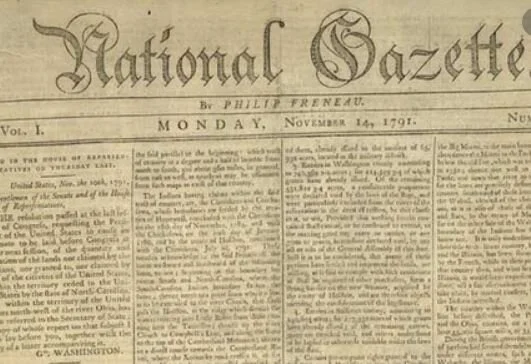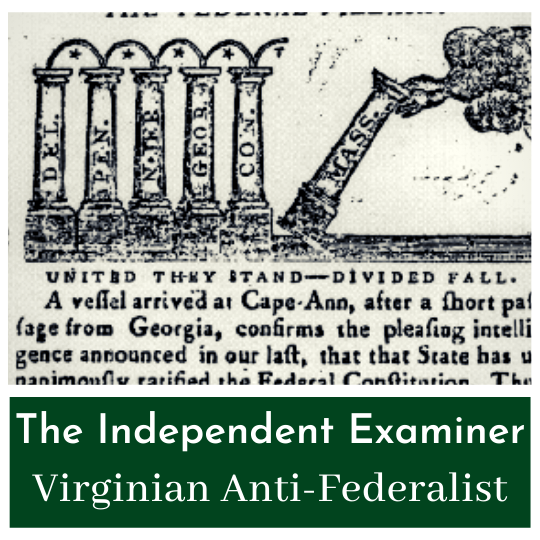The Impartial Examiner Confronts Arbitrary Government
The Impartial Examiner was a series of Anti-Federalist Papers published in Virginia during the first half of 1788.
The Impartial Examiner
The Impartial Examiner is one of those hidden Anti-Federalists whose true identity will forever be unknown.
The Letters of The Impartial Examiner, however, are extremely important to understanding the full arguments against ratification of the Constitution.
The first of five essays was originally published in the Virginia Independent Chronicle, in February of 1788 with the rest following in May and June.
I
In the first Letter, the Impartial Examiner focuses on the difference between arbitrary and free governments.
When speaking of an arbitrary government, the Examiner follows the general definition of a government whose leaders are in now way responsible to the will of the people and rule in whatever fashion they please.
Conversely, free government is one where the people decide on the rulers and set limits to their actions.
The Examiner is concerned that the open-ended construction of taxation, military and courts in the Constitution will gear it toward an arbitrary government.
These fears are further supported by the lack of a Bill of Rights, which should give the people an opportunity to defend themselves from oppression by having a clear-cut list of rights they can point to.
II
In the second essay, the Examiner explains that arguments regarding whether or not the Constitution will help this country as a whole are meaningless because the government itself is arbitrary.
He also goes on to detail how Anti-Federalist is a bad name for those who oppose the Constitution.
The Anti-Federalists were actually in support of a federal government, which would make a union out of powerful, though separate, States.
The Federalists, on the other hand, were actually Nationalists who wanted to consolidate all the States under one powerful government (in his opinion).
III-V
The final three letters are less important historically, so we will outline them briefly here.
In the third Letter, the Examiner focuses on the House of Representatives’ number of Congresspeople, stating that he believed it to be too small to accurately represent the people.
The fourth essay argues that the Presidential veto could be used for the Executive Branch to assume power.
The fifth Letter defends the Articles of Confederation. The Articles were not ‘bad’ (as is often claimed) but just needed a bit of fixing. Simply expanding its power to regulate commerce and provide for the common defense would remedy any issue facing the United States.
This was just one article in my series on the Anti-Federalist Papers.
If you want to keep up with the entire series, make sure you subscribe to my daily newsletter here:
I’ve put a lot of time into reviewing the Federalist Papers, so if you want to read more, check them out here:






